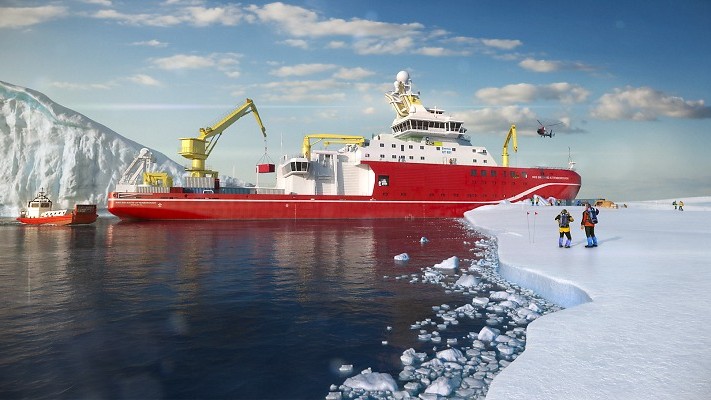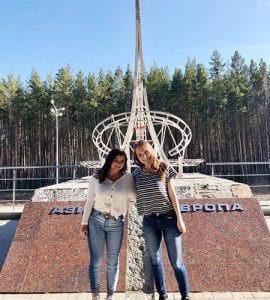Taking Action on Climate Change, and More – Boston News

Let’s explore some of the most interesting stories that have emerged from Boston business schools this week.
This Tool is Pushing People to Take Action on Climate Change – MIT Sloan Newsroom
New research from MIT Sloan Professor and Sustainability Initiative Director John Sterman finds that the role-play simulation World Climate, in which “participants take on the role of delegates to the UN climate change summits, and negotiate face-to-face with other participants to reach a climate change agreement,” might assist the powers that be understand and inspire environmental change.
Sterman and his co-authors write, “The results indicate that World Climate offers a climate change communication tool that enables people to learn and feel for themselves, which together have the potential to motivate action informed by science.”
“Research shows that showing people research doesn’t work. World Climate not only boosts people’s knowledge of climate change and increases the urgency they feel, but also generates gains in hope.”
You can read the full article here.
The Legacy of Boaty McBoatface: Beware of Customers Who Vote – HBS Working Knowledge
Harvard Business School Professors Michael Norton and Leslie John recently co-authored a new working paper about the pitfalls of crowdsourced naming competitions. Case in point: Boaty McBoatface, the winning entry for the National Environmental Research Council’s online voting poll to name the agency’s new research vessel.
When NERC overruled ‘Boaty McBoatface,’ there was massive public backlash. Professor Norton explains, “When firms conduct online polls, people frequently submit ridiculous entries; and with social media, those entries will go viral. But even when firms never guarantee that consumers will choose the winner, consumers infer an implicit contract and are upset when that contract is violated.”
The researchers incorporated the NERC case study into its research as a compelling example of how companies can potentially violate consumer trust in crowdsourced polls, according to John. “It’s offensive because consumers feel as though the firm broke the contract.”

In 2016, the National Environmental Research Council conducted a public poll to name its vessel. The winner, infamously, was Boaty McBoatface, but the council renamed it to the RRS Sir David Attenborough.
Norton and John offer a number of options that allow companies to safeguard against potential fallout from “off-the-wall choices” by being “very explicit about how they will consider the voice of consumers before the vote begins.”
The researchers also advise “pre-selecting acceptable outcomes on which consumers can vote, culling options from consumer suggestions without publicizing the actual number of votes for each, [or] setting up some kind of screening process, by which only actual customers can vote, but giving out a voting code attached to products.”
You can read more from Norton and John here.
From Building on Bones to Building on Blockchains: D’Amore-McKim Students Experience Russia – DMSB Blog

Marina Hess DMSB21 and Anya Losik COS21 pose at the border between Europe and Asia
The D’Amore-McKim School of Business at Northeastern University recently profiled 16 students who took part in a month-long Russian study abroad trip entitled “Driving Growth in Russia: From Building on Bones to Building on Blockchains.”
Yuan Vu Dinh Van (DMSB ’21) broke down the major takeaways from the cross-country excursion.
“By visiting Russia, I was able to see a different way of doing business compared to the model used in the U.S. Business in Russia seems to be conducted similarly to that of Ecuador, as only the people with the contacts and the money succeed in business, while in the U.S. it is easier for anyone to do that.”
Van adds, “I also learned about different ways to manage people, as Russian employees often prefer to be given orders and don’t have as much freedom as U.S. employees typically have in regards to the decision making. It really opened my mind to how important the role culture plays in doing business in different countries.”
You can read more from the interview here.
England, UK Business Schools Nervously Ready for World Cup Semi-Final

For France, Belgium, and Croatia, the raw enthusiasm of making the semi-finals of the 2018 World Cup is nearly impossible to measure. But if it were possible, it might be hard for either of those country’s to match the torrid energy that England is swelling in at the moment.
Columbia Research Illuminates Unconscious Cause of Fake News

Fake news, the most oft-repeated phrase of 2017, doesn’t just rise out of some malevolent direction. According to Columbia Business School, there are many social factors hidden in the process.
Fake news has become an epidemic of sorts, as the recent investigation into how Russia used divisive Facebook posts to possibly influence the presidential election demonstrates, planted stories can have a “powerful and multiplying effect” due to their circulation on social media. Reportedly, fake news possibly impacted elections France and Kenya, as well.
Gita Johar, the Meyer Feldberg Professor of Business at Columbia Business School, along with doctoral students Youjung Jun and Rachel Meng, published research entitled Perceived Social Presence Reduces Fact-Checking in which they discovered that people are less likely to investigate the veracity of ambiguous claims when they are “consumed in a group setting” and when that information “aligns with their own party affiliation.”
According to the article, Johar, Jun, and Meng “conducted eight experiments to evaluate how the presence of others affects the way that people evaluate information and the extent to which people verify ambiguous claims.” The study found that “perceiving the company of others seemed to influence people’s willingness to verify information, not how much they believed it.” Their research posited three potential reasons why “collective settings may suppress fact checking.”
- Individuals may exert less effort (and hence be less likely to fact-check claims) because they expect to ‘free ride’ on others.
- People may abide by social norms that lead them to take the words of others at face value.
- Crowds may inherently cause people to feel ‘safety in numbers,’ which decreases vigilance in general.
Johar concludes, “Animals in the wild hide out and feel safer in herds and, similarly, we feel safer in a crowd. When applied to information consumed on social media, this same instinct results in lower fact-checking.”
You can read more about the trio’s research on fake news stories on the official Columbia Business School website.
USC Marshall MBA Alum Talks Myanmar Business Opportunities

Sometimes, success is about being at the right place at the right time. That was the case for Paul Wilson, an ’94 IBEAR MBA graduate from the USC Marshall School of Business and the Managing Director of Four Rivers—a Myanmar-based consulting company building businesses in Myanmar, Russia, India, Iraq and the UAE. Using his MBA and military background, Wilson has had the unique opportunity to influence the emerging Myanmar economy. Continue reading…
Ivey Professors Talk 2017 Canadian Economy

In the last month, two Ivey Business School professors have been interviewed to talk about the state of the Canadian economy in 2017. In both cases, they shared their concerns and their ideas for the future. Continue reading…
